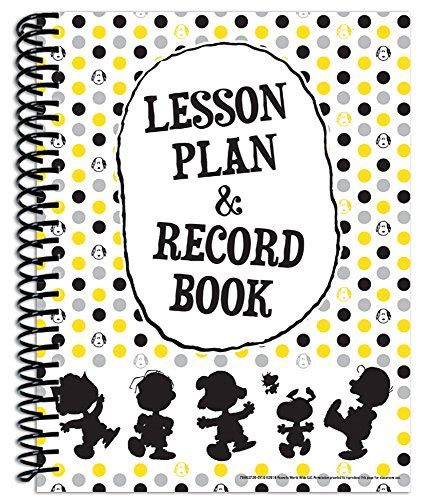Sportspeople are physically fit, but what about their mental health? Are they mentally fit as well? After all, they are humans. They face their fears, cope with stress, and go through anxiety. We cannot even imagine the pressure one would feel when the entire nation relies on their performance. That is why we have sports psychology. This is an amazing opportunity after getting a psychology degree.

What is sport psychology?
Sports psychology is a branch of psychology that works closely with training athletes or sportspersons. They have licensed psychologists, but they look after the mental health of athletes, boxers, cricketers, wrestlers, etc. Playing sports on the national and international level is a pressure. Famous athletes receive backlash when they lose a game, and these psychologists look after their mental health. Their goal is to relax the athlete and increase their performance through therapy.
There are three types of the sport psychologist,
Applied sports psychologist:
These focus on practical training and teaching skills to increase individual or team performance.
Clinical sports psychologist:
This type of sports psychologist works on therapy. They deal with people sustaining injuries, pressure, anxiety, and mental illnesses. The goal is to increase performance and alleviate issues.
Academic sports psychologist:
Their job is to teach in college and university. They frequently research methods to improve the performance of the team.
What are the responsibilities of a sport psychologist?
Your main job responsibility as a sport psychologist is to look after the athletes. How can you help them? The sports psychology job description includes,
- Counsel them according to their performance.
- Tell them how they can cope with injuries and overcome their weaknesses.
- Set workshops to counsel many athletes collectively.
- Use different techniques to enhance performance.
- Teach them how to overcome pre-game nervousness.
- Counsel athletes with injuries.
- Help them to overcome their anxiety.
These are the basic responsibilities of a sport psychologist. Your career in sports psychology revolves around the well-being of sportspersons.

How can you become a sports psychologist?
You can start your sports psychology career by completing your bachelor’s degree. After this, you must pursue a master’s in psychology. We recommend that you take additional courses in sports physiology, biomechanics, and medicine. You can also directly go for a sports psychology major. After this, you can either apply for a doctorate program or licensure. The doctorate will cost you 3-4 years, but the scope is good for Ph.D. doctors. Your final hurdle is licensure. You need it because you cannot practice without a license. You must take your state exam and obtain it.
Salary of a sport psychologist
This is relatively a new domain, so it doesn’t have much competition yet. Although, people are becoming aware of it every day. The salary depends on certain factors like,
- Experience; whether you are freshly graduated or not.
- Education; whether you are a master’s or doctorate.
- Type; the kind of sports psychologist you are.
However, the average salary of a clinical psychologist ranges from $82,180 per year, and for academic psychologists is $60,000. However, psychologists working with celebrity-level athletes may earn up to a six-figure salary.
Work environment
Things like the work environment and working hours are essential to consider while selecting for a career. It matters a lot if you are a family person. Clinical sports psychologists have an office job. They have appointments with athletes, and they counsel them. Applied sports psychologists may have to travel with the sportspeople, and academic sports psychologists work in a college or university.

Pros of sport psychology
- You can work with many famous personalities in sports.
- Various options are depending on the type of sport psychology and the kind of sport.
- The salary is good.
- It is an exciting and challenging job.
Cons of sport psychology
- It will take at least seven years to complete your education. You will need a job in the meantime to support yourself.
- Employers prefer a doctorate over a bachelor’s or masters.
- It requires a lot of hard work.
Is sport psychology the right career for you?

Honestly, you have to decide this for yourself. After reading all the information, ask yourself if this is what you want from your career. If yes, then go for it. It is a new field so there are many sports psychology job opportunities. You can work hard and score a six-figure salary.
 Four Paws Wee Wee Pee Pads For Dogs And Puppies Training L Gigantic Xl St
Four Paws Wee Wee Pee Pads For Dogs And Puppies Training L Gigantic Xl St
 Pny 128gb Elite X Class 10 U3 V30 Microsdxc Flash Memory Card 100mbs
Pny 128gb Elite X Class 10 U3 V30 Microsdxc Flash Memory Card 100mbs
 Academy Of Beasts V Shifter Romance
Academy Of Beasts V Shifter Romance
 Beast Academy 5a Practice
Beast Academy 5a Practice
 32gb Class 10 Sdhc Flash Memory Card Standard Full Size Sd Card Ush I U
32gb Class 10 Sdhc Flash Memory Card Standard Full Size Sd Card Ush I U
 Go Power F 200 Class T 200 Amp Slow Blow Fuse Silver
Go Power F 200 Class T 200 Amp Slow Blow Fuse Silver
 Blue Sea Systems 5116 Fuse A3tclass T 200a
Blue Sea Systems 5116 Fuse A3tclass T 200a
 Eureka Peanuts Classic Characters Deco Kit 840227
Eureka Peanuts Classic Characters Deco Kit 840227
 Eureka Peanuts Geometric Back To School Classroom Supplies Record And Less
Eureka Peanuts Geometric Back To School Classroom Supplies Record And Less
 Marathon Revised And Updated 5th Edition The Ultimate Training Guide Advice
Marathon Revised And Updated 5th Edition The Ultimate Training Guide Advice
 La Bella 413p Studio Classical Guitar Strings
La Bella 413p Studio Classical Guitar Strings
 12 Easy Classical Masterpieces For Solo Guitar Complete Classical Guitar Arran
12 Easy Classical Masterpieces For Solo Guitar Complete Classical Guitar Arran














![Flutter & Dart - The Complete Guide [2022 Edition]](https://img-c.udemycdn.com/course/100x100/1708340_7108_5.jpg)










